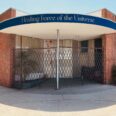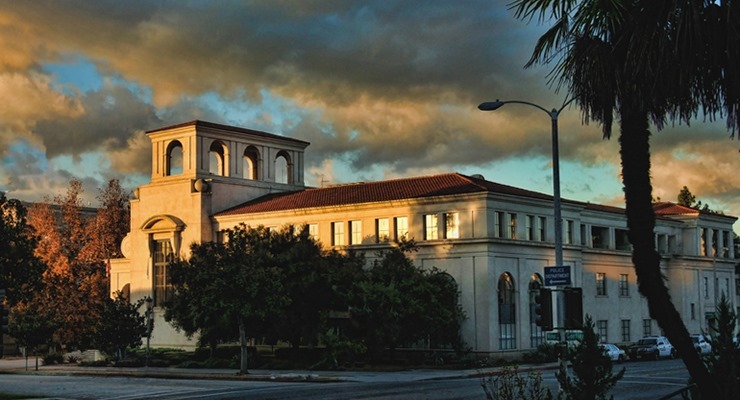The Pasadena Sister Cities Committee’s Senegal Subcommittee, which facilitates the diplomatic relationship between Pasadena and Dakar-Plateau, Senegal, is hosting Dr. Terrence Roberts in the fourth installment of its virtual speaker series at 6 p.m. on Thursday, March 11. Dakar-Plateau is Pasadena’s first Sister City on the African continent.
At the event, Roberts will talk about how the chaos in Little Rock more than 60 years ago provides insights into the social, cultural, political and economic life of contemporary America. He will explain how the historical lessons from Little Rock “pertain to current racial issues in Pasadena and the rest of the country. One of the lessons teaches us how strong and committed oppositional forces can be when their version of how life should be lived is threatened by ideas antagonistic to their own,” he told Pasadena Now.
In the wake of an insurrection and riot at the U.S. Capitol Building by supporters of former President Donald Trump and white supremacist militia groups, not to mention ongoing police violence against Black and Brown communities, those lessons are needed now more than ever.
Roberts, a longtime Pasadena resident, was one of the Little Rock Nine, the group of Black students who enrolled in previously whites-only Little Rock Central High School in Arkansas in 1957, three years after the Supreme Court declared segregated schools unconstitutional in Brown vs. Board of Education.
The students were initially prevented from entering the school by hordes of angry, racist protestors and the Arkansas National Guard, which was deployed by Governor Orval Faubus. President Dwight Eisenhower had to call in federal troops to escort the Little Rock Nine into the school. Roberts said the group was physically and psychologically attacked on a daily basis.
“That was the order of the day,” Roberts said. “In fact, my whole goal that year was to stay out of harm’s way if possible or avoid getting killed in the midst of some of these encounters. These folks were very serious about this and they were determined to make certain that we did not survive. I don’t know to this day how we all survived. We had chosen to be nonviolent resisters. If we had tried violence, we probably would have been killed as a consequence.”
Originally, there were many more students who volunteered to enroll in Little Rock, but that number quickly got whittled down due to the risk involved.
“We were about 150 strong, but because of parental fear that we might be killed, most of the parents said, ‘No,’ and only ten sets of parents said, ‘Yes.’ So for a very brief time, we were the Little Rock Ten,” Roberts said. “That lasted about one day. Afterward, the group of nine of us showed up and we were of course turned away from school. We were out of school for about three weeks prior to the president sending in the 101st Airborne Division to take us in.
“Now, that was not the end of our troubles,” he continued. “In fact, you might say that was the beginning of the chaos because there was great opposition to our presence. We were not welcomed. In fact, the word was, ‘Either you leave voluntarily, or we’ll kill you and drag you out.’ None of us were certain that we would leave school on our own two feet on any given day.”
He assumed that people would eventually accept the new reality and move on, but that was not to be.
“Not these folks,” he said. “They were so wedded to the notion of segregation and discriminatory practices that they were unwilling to give that up. They fought to the end. They’re still fighting. Fortunately, we all made it out alive, and eight of us remain alive today. Our numbers are eight, but we are still the Little Rock Nine.”
Roberts went on to lead an esteemed career as a clinical psychologist, scholar and management consultant on fair and equitable practices in business and industry. He is the CEO of Terrence Roberts Consulting and a member of the adjunct faculty of the Simon Wiesenthal Center in Los Angeles. He served as a member of the Pacific Union College faculty, the director of mental health services at St. Helena Hospital and Health Center, assistant dean of student services at UCLA’s School of Social Welfare and department chair and faculty member in psychology at Antioch University. He has a Ph.D. in psychology from Southern Illinois University.
He has received numerous awards, including the Congressional Gold Medal presented by President Bill Clinton, and serves on several organizational boards, including the Western Justice Center Foundation and the Little Rock Nine Foundation.
He and his wife Rita founded an organization in August 2015 called Roberts & Roberts LLC, which is dedicated to fostering racial dialogues in communities, schools, churches and businesses. He regularly consults with local, state and national law enforcement agencies to “assist their officers to develop more advanced understandings of the ways in which some of their attitudes about different others are established by their belief in systems founded upon mythological constructs and supported by pernicious ideologies promulgated by those who wish to preserve a static social hierarchy.”
Roberts has written two books: a memoir about his experience in 1957 called Lessons from Little Rock, and reflections on civic and social responsibility and community welfare called Simple Not Easy. He is currently working on a third book tentatively titled Learning to Navigate the Racial Terrain in America: 79 Years of Uncertainty. Roberts turned 79 in December.
Roberts has started dialogues across the country in an effort to get people to see the reality of racism in America. Many people harbor a false narrative about race from an early age, which makes it difficult to dissuade.
“A lot of people don’t believe that the country was founded on principles of racism, when in fact it doesn’t take much exploration through the historical annals to find proof that this is so,” he said. “So we have to scale that mountain first and help people realize that the truth they believe in is not truth at all. It’s some sort of linguistic fiction that has helped them develop a narrative that they live by, but in truth, things are swirling around them that they can’t even see. I see it present in the conversations I have with people all the time. They’re simply unaware of the racial issues that exist, or they choose not to see it. They’re willfully blind, willfully ignorant.”
He added that he’s still convinced that dialogue can help people see the truth, and therefore there’s still hope.
“As humans, we have the power to dialogue, to talk, to communicate, and we can change our minds, the way we think,” he said. “We can do things differently if we so choose. We want to bring people to the brink of choice: show them what the options are, and then leave it to them to choose to see what is possible.”
The police murder of George Floyd, for example, and the subsequent protests last summer “awakened the conscience of a lot of people who perhaps heretofore had given not much thought to what was going on. They may have given some expression of concern about what was happening, but not to the extent that we see and hear even now. It had a very lasting impact. Whether it will lead to a movement, I really don’t know. I hope so. I truly hope so.”
Register for the March 11 Sister Cities event with Dr. Terrence Roberts at https://us02web.zoom.us/meeting/register/tZMkc-uorTstHtG_7cHU2KVV_aQ6g-q8AMtl.
About Pasadena Sister Cities
The Pasadena Sister Cities Committee’s Dakar-Plateau Subcommittee had a number of in-person events and cultural exchanges in mind before the COVID-19 pandemic intervened. To help bridge that gap, they’ve launched a virtual speaker series as a way to educate the public and keep that relationship connected, said Boualem Bousseloub, chair of the subcommittee.
The idea of partnering cities grew out of the Twin Town concept in Europe in 1946 following World War II. Ludwigshafen was selected in 1948 by the Pasadena branch of the American Friends Service Committee. America’s involvement came in 1956 following President Dwight Eisenhower’s White House conference on citizen diplomacy, out of which grew Sister Cities International (SCI). Pasadena formally established its Sister Cities chapter in 1960.
Pasadena has six Sister Cities partnerships, with Ludwigshafen, Germany (1948); Mishima, Japan (1957); Järvenpää, Finland (1983); Vanadzor, Armenia (1991); the Xicheng District of Beijing, China (1999); and Dakar-Plateau, Senegal, which was approved by the Pasadena City Council in 2018 after many years of discussion, planning, and research, including an exploratory delegation to the West African city led by Bousseloub and Councilmember John Kennedy. Following approval by both cities, Dakar-Plateau Mayor Alioune Ndoye led a delegation to Pasadena in June 2019 and Pasadena Mayor Terry Tornek led a delegation to Dakar-Plateau in March 2020 to finalize the partnership.
Dakar-Plateau has a population of nearly 37,000 people and is one of 19 districts of Senegal’s capital of greater Dakar, serving as its political, financial and commercial center. Dakar is the westernmost city on Africa’s mainland, with a population of 1 million.

















